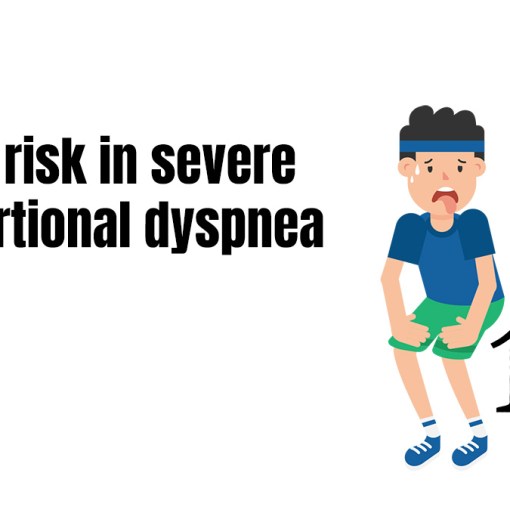I did it again. I was at the nursing station in our resuscitation area and I commented on how quiet the night had been so far. Of course, all hell broke loose.
Now, I should point out that the ensuing chaos was not the result of a surge of critically ill patients. It was just the result of a group of nurses yelling, and throwing the occasional projectile my way. Don’t worry, I ducked. This wasn’t my first rodeo.
Much to the chagrin of my colleagues, I love to talk about the “quiet effect”. Although others seem to disagree, I think the superstition around saying “quiet” provides us with fascinating insights into the shortcomings of the human mind and the importance of the scientific method. I don’t just say “quiet” to tease – I swear.
Probably the most important concept to understand when thinking about the “quiet effect” is regression to the mean. Regression to the mean tells us that when we see extreme measurements, we should expect that subsequent measurements will tend to be closer to the true average. (As a side note, I really like the older term for the same phenomenon: “reversion to mediocrity”.)
The implications for the “quiet effect” are clear. It takes a lot to make the emergency department seem quiet. The moments that we take notice of, or comment about, how quiet it is are all extreme measurements. Statistically speaking, it is inevitable that the following hours will be busier. The workload is bound to regress to the mean.
In addition to regression to the mean, there are likely a number of other cognitive biases that help contribute to the idea that saying the word “quiet” can somehow jinx the department.
The largest contributor is almost certainly confirmation bias (the tendency only to notice evidence that supports your belief and reject contrary evidence.) As the nurses where I work will irritably tell you, I say the word “quiet” every single shift that I work. Once or twice a month, someone will report back to me that the department ‘went to hell’ right after I left, and it was all my fault for saying “quiet”. However, nobody seems to notice the other 9 times when I said “quiet” and nothing happened.
Confirmation bias can probably become very fine grained in this situation. You remember that I said “quiet” all night long, so that even if the next 8 hours are perfectly quiet, the fact that the 9th hour is a little busy gets blamed entirely on me, rather than the natural ebb and flow of a busy emergency department. (There is also probably a component of the texas sharpshooter fallacy in there, in which you take all your shots first and then paint the bullseye later).
Ascertainment bias occurs when your thinking is shaped by your expectations (you see what you expect to see). After someone says “quiet”, any new patients, even if less than average, might be interpreted as a surge because that is what you were expecting.
If you look closely, I imagine many conversations about the quiet effect also include the framing effect, feedback sanction, and the fundamental attribution error. Our mind is absolutely fascinating, and deceives us in many ways. Our superstition about saying”quiet” provides us with incredible insight into the shortcomings of human observation, and the reasons that we developed the more rigorous scientific method.
I know there are a large number of people out there who wish that I would just keep quiet, but anyone who has met me knows that that is unlikely. I will continue on my quest to ensure hospitals are bastions of rational, scientific thought, rather than superstitious mumbo-jumbo. I am not afraid of saying “quiet”. Maybe next time we can tackle full moons?
Want some more discussion about regression to the mean? Here is a long-winded baseball analogy:
Unfortunately, the repeated use of the word “quiet” can provoke emotions that seem to inhibit my colleagues’ ability to, or perhaps desire to, discuss such interesting statistical concepts. Perhaps a boring baseball analogy can help.
In baseball, a “no-hitter” is a rare event in which the pitcher allows no hits over the course of the entire 9 inning game. There have been 299 no-hitters since 1876, or about 2 per season. (For reference, there are currently 2430 total regular season games each year). If a pitcher has made it through 6 or 7 innings without giving up a hit, it is considered very bad luck to talk about it. The idea is that you are going to “jinx” their chance at a no-hitter. Sound familiar?
Contrary to no-hitters, hits are very common in baseball. Most teams average 8 or 9 hits a game, or about 1 hit an inning. When there have been no hits through 6 innings, we really should expect to see a hit. It is statistically much more likely that we see a hit than we don’t.
However, getting through 6 innings without giving up a hit is a rare enough event that people will take notice. No one is going to talk about a no-hitter after just 2 innings, but after 6 or 7 innings, the commentator is likely to mention the developing no-hitter. Then, when a hit occurs during the next inning, we blame the commentator because he just mentioned it, even though we know that hit was statistically inevitable.
Hits are common. We should expect them. Emergency departments are busy. We should expect patients. We take notice during extremes – 6 inning no hitters or a few unusually quiet hours – but we should not be surprised with the subsequent regression to the mean.
Could talking about a no-hitter even possibly influence the outcome? I guess the real question is: who are you talking to? If you bring up the idea of a non-hitter with the pitcher, you could have a real impact on the outcome. (Being aware of their proximity to history might change the way they pitch). On the other hand, talking about the no-hitter with your friend at home cannot possibly impact the outcome. If it could, then opposing fans should always talk about a no-hitter in the very first inning of every game.
Returning to the word “quiet”, we have to consider who we are talking to. Saying “quiet” to the staff of an emergency department cannot possibly affect the number of sick patients in the community. However, if you went into the community and told a large cohort of potential patients how quiet the emergency department is right now (which we sometimes do by posting wait times), you could actually end the period of quiet by flooding the department with a wave of worried well. In fact, based on our experience with posting wait times online, I am fairly convinced that this community faced messaging combines with regression to the mean to create a rebound effect: people come to the emergency department because they think it will be quiet, but by the time they get there it has become very busy. However, it is fairly clear that my innocent remarks to the charge nurse cannot magically make people sicker. (With the exception of the workplace violence occasionally directed at me after using that word).
Morgenstern, J. I said “quiet”, First10EM, July 16, 2018. Available at:
https://doi.org/10.51684/FIRS.6119






4 thoughts on “I said “quiet””
Right with you. Quite similar to medical professionals not having the flu jab because “they always get flu right after”. You could randomly say quiet or not every time that it is, record the time to the next surge (define?), plot the results… Either way, enjoy the outlier, it won’t last!
I read this articl earlier in the year he Q**** Study – basic randomised evaluation of attendance at a children’s emergency department. It found that there is no correlation between use of the word Quiet and business in Emergency Departments. Just like the full moon phenomenon.
Johnson, G. (2018). The Q**** Study – basic randomised evaluation of attendance at a children’s emergency department. [online] Emergency Medicine Journal. Available at: https://emj.bmj.com/content/27/Suppl_1/A11.2 [Accessed 27 Jul. 2018].
Thanks for the comment. I do love the Q study. I plan on doing a follow up post at some point with the EBM side of this. But I don’t think you really need EBM, because there is no face validity to the concept.
It’s worth noting that there may be significant international or regional variation. Certain populations may be more susceptible to Q-word based magic. A multi-center, single blind RCT conducted in Yorkshire (UK) found a statistically significant increase in admissions:
Lamb, J., Howard, A., Marciniak, J., & Shenolikar, A. (2017). Does the word “quiet” really make things busier? The Bulletin of the Royal College of Surgeons of England, 99(4), 133–136. https://doi.org/10.1308/rcsbull.2017.133